THE ECONOMY OF GLORY
From Ancien Rgime France to the Fall of Napoleon
ROBERT MORRISSEY
Translated by Teresa Lavender Fagan
The University of Chicago Press
Chicago and London
Robert Morrissey is the Benjamin Franklin Professor of French Literature in the Department of Romance Languages and Literatures at the University of Chicago and executive director of the France Chicago Center.
Teresa Lavender Fagan is a freelance translator living in Chicago. She has translated numerous books for the University of Chicago Press.
The University of Chicago Press, Chicago 60637
The University of Chicago Press, Ltd., London
2014 by The University of Chicago
All rights reserved. Published 2014.
Printed in the United States of America
23 22 21 20 19 18 17 16 15 14 1 2 3 4 5
ISBN-13: 978-0-226-92458-8 (cloth)
ISBN-13: 978-0-226-92459-5 (e-book)
DOI: 10.7208/chicago/9780226924595.001.0001
Originally published as Napolon et lhritage de la gloire, Presses Universitaires de France, 2010.
The University of Chicago Press gratefully acknowledges the generous support of the Division of the Humanities at the University of Chicago toward the publication of this book.

http://www.centrenationaldulivre.fr
Library of Congress Cataloging-in-Publication Data
Morrissey, Robert, 1947
[Napolon et lhritage de la gloire. English]
The economy of glory : from ancien rgime France to the fall of Napoleon / Robert Morrissey ; translated by Teresa Lavender Fagan.
pages cm
Includes bibliographical references and index.
ISBN 978-0-226-92458-8 (cloth : alk. paper) ISBN 978-0-226-92459-5 (e-book)
1. Napoleon I, Emperor of the French, 17691821 . 2. Napoleon I, Emperor of the French, 17691821Influence. 3. FranceHistoryConsulate and First Empire, 17991815Historiography. 4. EmperorsFranceHistoriography. I. Title.
DC203.9.M6813 2014
944.05dc23
2013014450
 This paper meets the requirements of ANSI/NISO Z39.48-1992 (Permanence of Paper).
This paper meets the requirements of ANSI/NISO Z39.48-1992 (Permanence of Paper).
CONTENTS
ACKNOWLEDGMENTS (2010)
I wish to thank all those who, nearby or from far away, have contributed to this book. First, I am grateful to all my colleagues at the University of Chicago, in particular to the greatly missed Franois Furet, with whom I had the pleasure of conducting a seminarone of his laston Les Misrables, a course that was influential in the development of this book. I am also grateful to those who took the time to read the manuscript, either in its entirety or in part, and who gave me their advice: Philippe Borgeaud, James Redfield, Claude Duchet, Peter Dembowski, and Paul Cheney. My editor at Presses Universitaires de France, Paul Garapon, was extraordinarily patient and supportive throughout; I thank him for all his work on the project. I also thank Stphane Douard, who was always available to discuss, suggest, read. The affection of my entire tribe was constant, Marie-Claires support indispensable; I thank them all from the bottom of my heart.
TRANSLATORS NOTE
I must begin with an enormous thank you to my longtime friend Robert Morrissey. Robert painstakingly reviewed the early drafts of the translation, making stylistic and more substantive changes to the text, which I gratefully incorporated into the final version. Roberts collaboration and help have been invaluable.
Regarding translations of cited French texts, I have used, where possible, existing published English-language translations, occasionally modifying them slightly. All other translations from the French are my own. The author has chosen to include the original French of many translated quotations within the body of the work; for most of the others, the French appears in brackets in the endnotes.
Given its greater length, the original chapter 4 of the French edition has been divided into two chapters in this translation.
INTRODUCTION
At the Confluence of Reality and Myth
Your glory is immense: the Universe can scarcely contain, and posterity will hardly believe, the most authentic events of your illustrious career, exclaimed soldiers of every rank in a letter addressed to Napoleon and published in Le Moniteur of 19 June 1804 (30 Prairial Year XII). To dispel any suspicion of flattery, they added: We know not the language of flattery! The language of the heart is the sole language worthy of the Great NAPOLEON. Although convinced that most of those outpourings were spontaneous, he observes that, because of their overwhelming similarity, they appeared artificial, as if solicited,
and indeed they were, not by the government, but by courtiers who took pride in doing so, and even by citizens and functionaries who in good faith believed that it was a means of forming public opinion, and promoting in people an even greater respect and love for the Head of State.
For Thibaudeau, who, moreover, clearly denounces Napoleons despotic tendencies, this panegyrical inflation was neither simply the mark of absolute power nor the result of some kind of mystification of the people, unwitting victims of diabolical propagandist machinations. In his opinion, such expressions were a phenomenon of collective exultation. This effervescent solidarity rested, of course, on the glory of Napoleon, a glory of such power that it seemed to eclipse even the feats of the heroes and demigods of antiquity. Indeed, one might even suggest that after attempting to erase time, to begin everything anew, revolutionized France collectively projected itself into the realm of myth.
Seen in this light, the Napoleonic moment can be understood as the final battle in the long quarrel between the Ancients and the Moderns; almost as if, to overcome the prestige of the Ancients, modern France needed an adventure worthy of the epic so many French authors, since the sixteenth century, had been seeking in vain to write, the better to prove that France was as great as the greatest civilizations of antiquity. In this brave new world the collective imagination was not to be burdened with a subtle use of language, nor did the thorny issue of Christian marvels need to be raised; the French had only to open their eyes; the truly marvelous was happening right in front of them. On 6 January 1806, Le Moniteur published an Ode sur les victoires de Napolon-le-Grand that described a Frenchman deep in thought before the tomb of Homer. In the ensuing dialogue between the ancient poet and the modern Frenchman, the man asserts that although Homers poetry remains unmatched, the exploits of the great Achilles have indeed been surpassed by those of a modern hero.
In the vast fields of victory,
This conqueror has harvested
More laurels and more glory,
Than you ever imagined.
Nowadays prodigious feats are very real.
There are no more wonders to behold;
I have seen the supernatural quality
Of the feats of antiquity vanish;
Fables have ceased to be fables;
There is nothing more incredible
Than the events taking place before our eyes.
Aux vastes champs de la victoire,
Ce conqurant a moissonn
Plus de lauriers et plus de gloire,
Que tu nen as imagin.
Il nest plus pour nous de prodiges;
Jai vu des antiques prestiges
Svanouir le merveilleux;
La fable a cess dtre fable;
Il nest plus rien dinvraisemblable,
Que les faits passs sous nos yeux.
This sense of living at the confluence of reality and myth had begun before the advent of Napoleon. Early on, seeking a legitimacy in harmony with all that it owed to the thinking of ancient republicanism, the new French Republic emphasized the parallel with the Roman Republic, in which glory played a primary role. We must also, asserted Bertrand Barre,
Next page

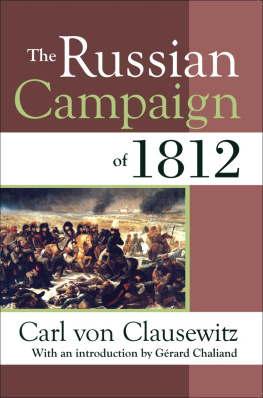
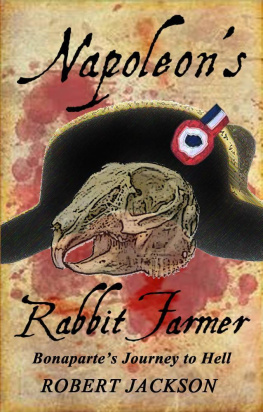
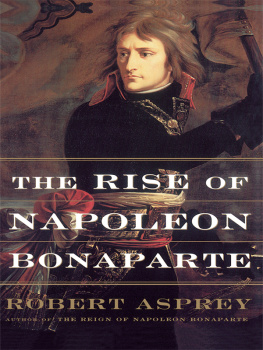

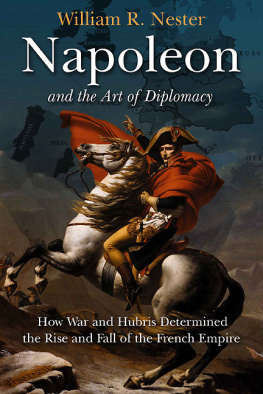
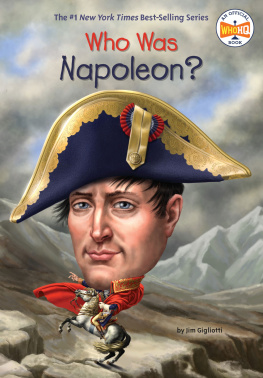
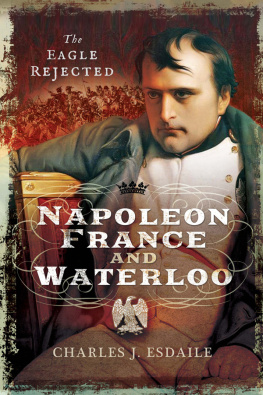


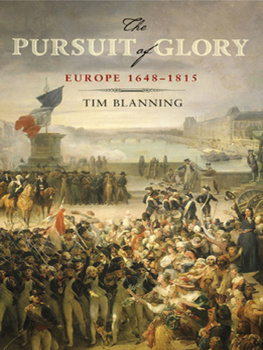

 This paper meets the requirements of ANSI/NISO Z39.48-1992 (Permanence of Paper).
This paper meets the requirements of ANSI/NISO Z39.48-1992 (Permanence of Paper).